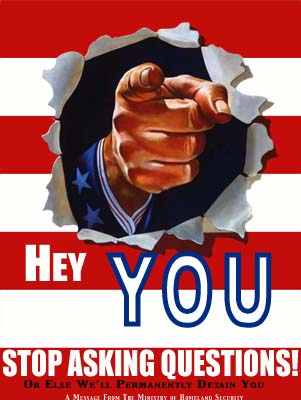As a taxpayer, I’m not a big fan of international bureaucracies. They consume a lot of money, pay themselves extravagant (and tax-free!) salaries, and generally promote statist policies.
The Paris-based Organization for Economic Cooperation and Development is a prime example. Originally created for benign purposes such as gathering statistics, it now is a bloated bureaucracy pursuing an anti-free market agenda.
But international bureaucracies also have a nasty habit of operating in the shadows and using thuggish behavior to thwart critics. And I have the scars to prove it from my efforts to protect fiscal sovereignty.
- Back in 2001, the OECD threatened to boycott its own global anti-tax competition meeting because one of the low-tax jurisdictions had the nerve to make me an adviser to its delegation.
- In 2008, the OECD threatened to have me thrown in a Mexican jail for the “crime” of standing in the public lobby of a hotel and providing advice to representatives of so-called tax havens.
But it’s not just the crowd in Paris that doesn’t believe in openness and fair play. A journalist recently traveled to South Korea to report on a World Health Organization conference on tobacco.
This doesn’t sound like the type of event that would involve skullduggery, but here’s part of what the reporter wrote for the Korea Times.
A monumental session during the World Health Organization’s (WHO) convention on tobacco control turned into an alarming attack on transparency, accountability and press freedom. …delegates of the member countries of the conference stripped the media of the ability to cover the meeting and escorted public onlookers from the premises. The decision to meet behind closed doors occurred when a discussion began about efforts to decrease tobacco use by increasing the price of tobacco products. Specifically, the convention attendees were discussing the framework for an international tobacco tax. This is one of the most controversial topics for debate in Seoul this week.
 This is what is called a “learning moment.” And the journalist clearly recognized both the WHO’s hypocrisy and its troubling policy agenda.
This is what is called a “learning moment.” And the journalist clearly recognized both the WHO’s hypocrisy and its troubling policy agenda.
As a reporter covering this meeting, this was not only a frustrating stance, but it raises some serious questions about an organization that for years has operated largely behind the scenes and without the benefit of much public scrutiny. When is the media more necessary than when an unaccountable, shadowy organization that devours millions of tax dollars each year from people across the world debates getting in the business of issuing global taxes? This effort to silence the press is particularly chilling since it is in direct conflict with the U.N. — the WHO’s parent organization—claims to fight to advance “free, independent and pluralistic media” across the world. Apparently, U.N. and WHO leaders believe in media rights in all cases except when the media covers them.
And remember, you’re paying for this thuggish behavior.
If you want to learn more about the underlying issue, I wrote about the WHO’s push for global tobacco taxation back in both May and September.
All of which is consistent with the broader ongoing push by the United Nations to get worldwide taxing power.
Needless to say, any form of global taxation would be a terrible development, but governments are sympathetic to such schemes since they view tax competition as a constraint on their ability to pursue redistribution and thus a limit on their efforts to buy votes with other people’s money.
